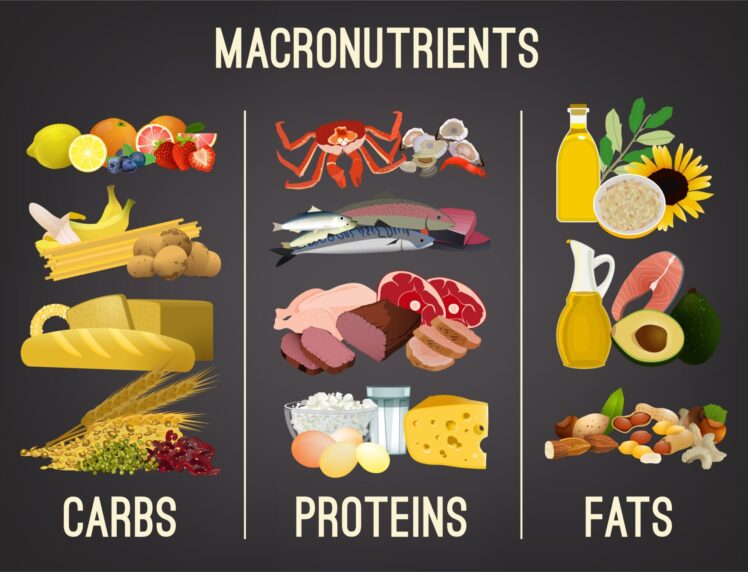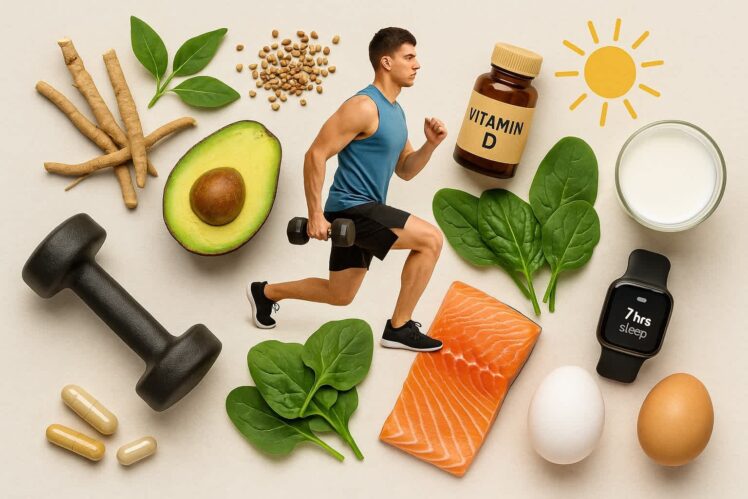How Diet Can Help Maintain Balanced Testosterone

A balanced diet is one of the most reliable ways to support healthy testosterone levels naturally. While genetics and age play key roles, nutrition influences how well the body produces and uses hormones.
Men who consistently eat nutrient-dense foods rich in zinc, magnesium, healthy fats, and vitamin D often maintain more stable testosterone levels compared to those consuming processed or restrictive diets. In simple terms, your diet can either boost or quietly drain your hormonal balance.
The Role of Nutrients in Testosterone Production

Source: h3health.co.uk
Testosterone synthesis depends heavily on micronutrients. Zinc is one of the most critical elements; it helps regulate enzymes in the testes responsible for hormone production. Foods like oysters, beef, pumpkin seeds, and chickpeas are reliable sources.
Similarly, magnesium aids in converting inactive testosterone into its bioavailable form, improving energy, mood, and libido. Good dietary sources include leafy greens, almonds, and whole grains.
Vitamin D acts like a hormone itself and supports the testes’ ability to produce testosterone. Low vitamin D levels are commonly linked to reduced testosterone and fatigue. Fatty fish (salmon, sardines), eggs, and moderate sun exposure are simple ways to increase intake.
Fats, Proteins, and Carbohydrates: Getting the Balance Right

Source: ketogenic.com
Healthy fats are essential for testosterone maintenance. Cholesterol is a building block for all steroid hormones, including testosterone, so eliminating all fats can actually suppress production. Focus on sources like olive oil, avocados, nuts, and omega-3-rich fish. Diets that include moderate amounts of these fats tend to promote hormonal stability and improved metabolic function.
Protein also plays a role, not just for muscle repair but for hormonal signaling. However, both too little and too much protein can disrupt balance. Aiming for about 1.2–1.6 grams of protein per kilogram of body weight per day is usually sufficient.
Carbohydrates, often seen as the enemy in modern diets, are important for maintaining proper insulin function. Insulin resistance is known to lower testosterone, so including slow-digesting carbs such as oats, brown rice, and sweet potatoes is beneficial.
Diet, Lifestyle, and Hormonal Feedback

Source: everlywell.com
Diet alone won’t sustain optimal testosterone if paired with high stress or poor sleep. Elevated cortisol levels, the body’s main stress hormone, directly suppress testosterone. Nutritional strategies that stabilize blood sugar, such as eating balanced meals with fiber and avoiding excessive sugar, help keep cortisol in check. Equally important is hydration, since dehydration can reduce plasma volume and indirectly affect hormone transport.
For men who already follow a balanced diet but still notice symptoms of low testosterone, such as fatigue, muscle loss, or low libido, it’s sometimes worth exploring additional nutritional support.
A carefully formulated testosterone supplement can complement healthy eating by providing targeted doses of minerals and plant extracts known to support natural hormone production. This is particularly relevant for older men or those under chronic physical stress.
Foods That Support Hormonal Health
| Nutrient | Key Foods | Role in Testosterone Balance |
| Zinc | Oysters, beef, pumpkin seeds | Supports hormone synthesis |
| Magnesium | Spinach, almonds, black beans | Improves bioavailable testosterone |
| Vitamin D | Salmon, egg yolks, sunlight | Stimulates testosterone production |
| Omega-3s | Sardines, walnuts, chia seeds | Reduces inflammation, supports hormone cell membranes |
| Healthy Fats | Olive oil, avocados | Provides cholesterol for hormone synthesis |
The Bottom Line
A well-structured diet remains the foundation of hormonal health. Whole foods rich in essential nutrients and healthy fats directly support the body’s ability to produce testosterone naturally.
Combined with regular exercise, good sleep, and stress management, proper nutrition creates an environment where hormones function efficiently without the need for extreme interventions. In the long run, maintaining a nutrient-rich, balanced diet is the most sustainable way to keep testosterone levels , and overall vitality , steady.





